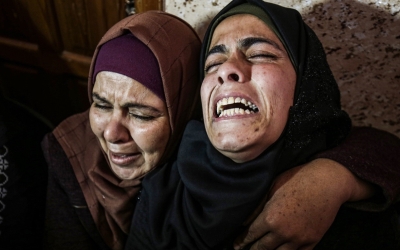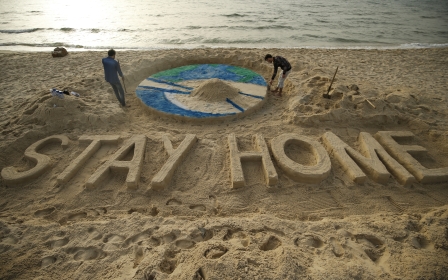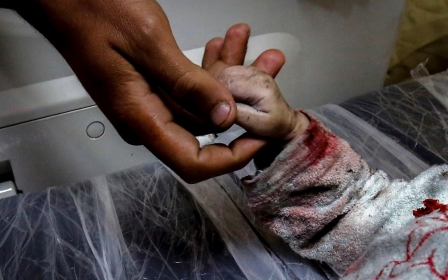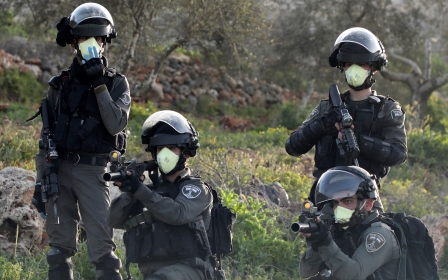Coronavirus: What I discovered during three weeks in a Gaza quarantine centre
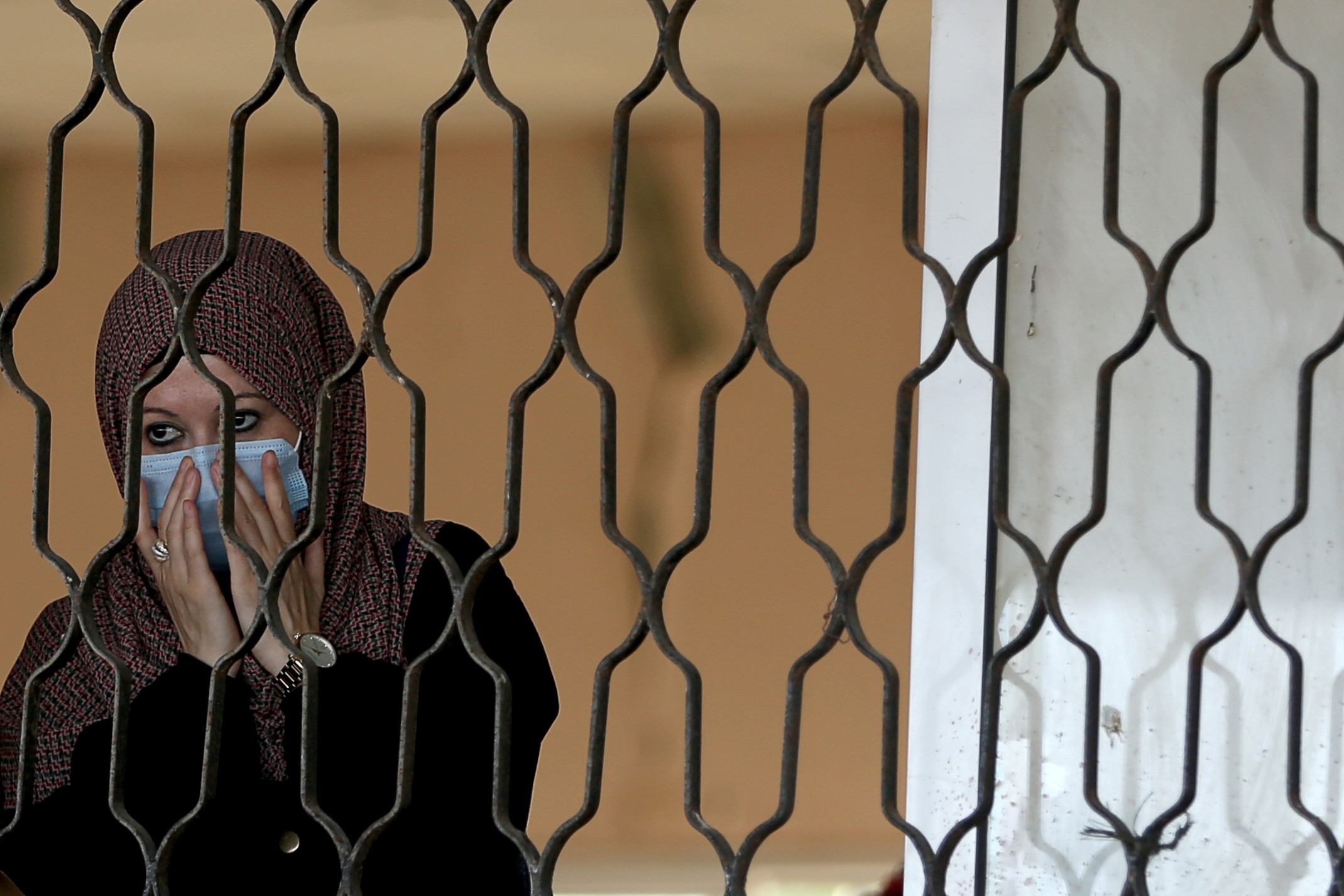
This week, Hamas authorities announced the first cases of community transmission of coronavirus inside the Gaza Strip, and imposed a 48-hour lockdown across the narrow coastal territory. The announcement sparked anxiety across Gaza over the possibility of an outbreak of catastrophic proportions.
For me, it recalled the feeling I had one evening several months ago, when I got off a bus in Gaza City, heart pounding, and prepared to enter a makeshift quarantine centre. In February, I had travelled out of Gaza on a rarely issued Israeli permit to attend meetings for Human Rights Watch, and was returning home when I got stuck in Amman for more than two months as governments closed borders in response to the Covid-19 pandemic.
Dust and cockroaches
I finally got permission to return to Gaza, and I spent 12 long hours that day travelling the less than 150 kilometres between Amman and Gaza City while fasting for Ramadan. As we queued up outside a rundown hotel serving as a makeshift quarantine centre where we would spend the next three weeks, the power cut off - a stark reminder that I was back home.
Since March, the Hamas authorities in charge of Gaza have required residents returning to the territory to spend 21 days in quarantine at centres they oversee.
New MEE newsletter: Jerusalem Dispatch
Sign up to get the latest insights and analysis on Israel-Palestine, alongside Turkey Unpacked and other MEE newsletters
I called my family and begged them, with tears in my eyes, to see if they could get me out of here. They told me there was nothing they could do
After registering us, security officials wearing masks and gloves escorted me, alongside five other women I had never met, to Room 1206 - actually, two bare-bones rooms with six mattresses on the floor, two bathrooms, a balcony with two more mattresses, poor internet and phone service, and no television, air-conditioning or refrigerator. There was dust everywhere, and my eyes darted to the cockroaches scurrying around. The officers told us we could not leave Room 1206 under any circumstances.
I pleaded with them to provide us with separate rooms, or at least a cleaner one, to no avail. I called my family and begged them, with tears in my eyes, to see if they could get me out of here. They told me there was nothing that they could do. I realised I had no choice but to surrender to this new reality.
The six of us started to clean the place that night, working feverishly until 1:30am, stopping only for the pre-sunrise meal that is a Ramadan staple. It was hot and crowded, and I still didn’t know the others well, so I rolled my mattress to the balcony and slept there. The idea of having to spend three weeks in these conditions kept me up until the early morning hours.
21 days later
I woke up the next day exhausted, with the sun blazing down on me and a severe headache and pain in my eyes. When I managed to open my eyes, I realised that I had a spectacular view of the Mediterranean and spotted a couple of fishermen in their boats. I looked up into the sky and heard a whisper inside me, telling me: “It will be okay.”
With so few things to distract me, I spent the next days getting to know the other women and learning about how they had ended up in Room 1206. One 26-year-old woman, who I’ll call Iman, told me that she had applied for years for permits to visit her fiance in the West Bank, but Israeli authorities denied them without explanation.
Finally, in July 2019, she got a permit to leave for Jordan, but not the occupied West Bank; soon afterwards, her fiance and his family visited her there. They eventually had to return to the occupied West Bank, and her efforts to find a way to be with him there led nowhere. Amid the uncertainty as governments sealed borders, she felt in May that she had no choice but to return to Gaza, in deep despair, unsure of whether she would ever see her fiance again.
The six of us spent hours together on that balcony, sipping tea and trading stories about our lives amid the Israeli-imposed closure and suffocating daily realities in Gaza. When we were not commiserating, I would spend time staring out at the sea, throwing food to the ravenous cats below, or reading a book over a cup of coffee and reflecting on my own journey.
From small cell to open-air prison
It really hit me on that balcony just how fortunate we were. I live in a place where almost no one is permitted to travel under Israel’s generalised travel ban, and those I’m closest to have never been able to leave the 360-square-kilometre enclave that is Gaza. But here we were, returning after visiting other countries.
In a place where 80 percent of the population relies on humanitarian aid, more than half lives below the poverty line and unemployment approaches 50 percent, I have a job. In a place where thousands have lost homes or loved ones during Israeli armed attacks on Gaza, I had a home to return to when lockdown measures were lifted and a loving family awaiting me.
I left the quarantine centre to return to the isolation that all Gaza residents experience under Israel's crippling 13-year closure
Twenty-two days later, I left the quarantine centre to return to the isolation that all Gaza residents experience under Israel’s crippling 13-year closure, compounded by Egyptian border restrictions. I feel like I’ve moved from a small cell to an open-air prison, but the experience has left me more determined than ever to continue my work so that people like Iman can someday enjoy the basic right to move freely and live with her fiance in her homeland.
The views expressed in this article belong to the author and do not necessarily reflect the editorial policy of Middle East Eye.
Middle East Eye delivers independent and unrivalled coverage and analysis of the Middle East, North Africa and beyond. To learn more about republishing this content and the associated fees, please fill out this form. More about MEE can be found here.



